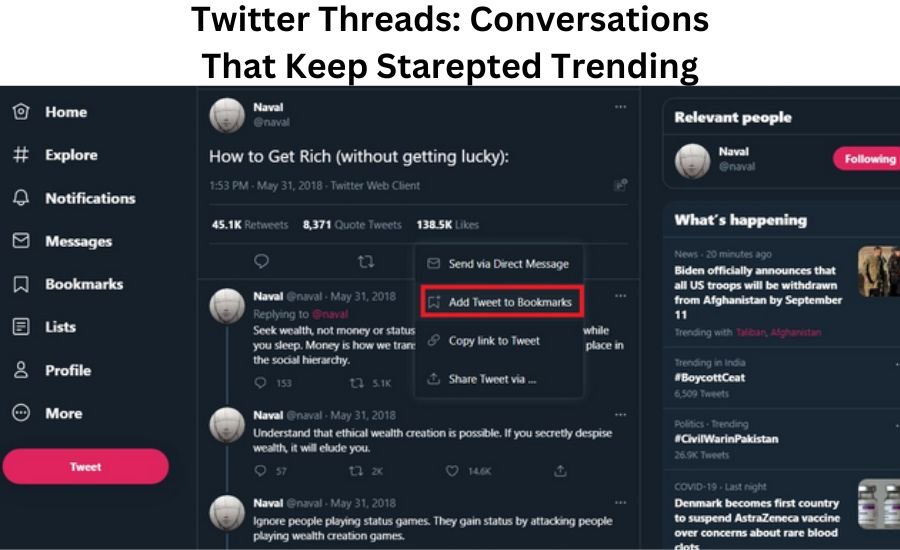Starepted is more than just a word; it’s a reflection of our digital age and the feelings that come with it. This unique term captures the surprise and awkwardness we often experience in everyday situations, especially in the fast-paced world of social media. As we navigate our online lives, the feeling of being “starepted” resonates with many, making it a term worth exploring.
In this blog post, we’ll dive deeper into the meaning of starepted, its origins, and how it has become a part of our vocabulary. From its use in humorous contexts to its connection with modern social interactions, understanding starepted can give us insight into the evolving nature of language in our digital society. Join us as we unpack the layers of this intriguing term!
What Does Starepted Mean?
Starepted is a new word that describes the feeling of surprise or awkwardness when something unexpected happens. For example, you might be looking at your phone and suddenly realize someone is watching you. This term perfectly captures that moment when you feel both shocked and a bit embarrassed. Many people can relate to this feeling in their everyday lives, especially in social situations.
The beauty of starepted lies in its ability to express complex emotions in a single word. It reflects our modern experiences, where technology and social interactions blend. As we communicate more through screens, moments of starepted become common. This word reminds us that we are all in this digital world together, sharing similar feelings and experiences.
The Origins of Starepted: How Internet Culture Shapes Language
Like many internet slang terms, the origins of starepted are somewhat unclear. It likely began on social media platforms like TikTok or Twitter, where new phrases often emerge. Users create catchy terms to describe their experiences, and this word caught on quickly. People began to share funny stories of their starepted moments, leading to its popularity.
Starepted seems to be a blend of “stared” and “repeated.” This combination makes sense, as it describes a situation where you’re caught off guard while staring at something. Language is constantly changing, and this word is a great example of how we adapt our vocabulary to fit our modern lives. Social media serves as a playground for such words, allowing them to spread quickly and gain acceptance.
Starepted in Everyday Life: Relatable Experiences We All Share
Imagine you’re in a meeting, daydreaming, and suddenly realize everyone is looking at you. That’s a classic example of being starepted. It’s a funny and awkward moment that many of us can relate to. These situations often lead to laughter and shared stories, making them memorable.
In our daily interactions, we can find moments of starepted everywhere. Whether it’s accidentally sending a text to the wrong group or zoning out in class, these experiences connect us. Recognizing these feelings can help us feel less alone. Starepted captures those relatable moments that make us human.
Using Starepted: Examples of this Trendy Term in Context

“Starepted” has become a popular term online, with people using it to describe unexpected or awkward moments in their lives. Below are some examples of how “starepted” can be used in different contexts:
- During a Virtual Meeting:
“I was completely starepted when my cat jumped onto my keyboard during a virtual meeting!”
This example shows how “starepted” can describe an unplanned and slightly embarrassing situation in the workplace. - Accidental Texting:
“I starepted myself when I sent a personal message to the wrong group chat. Oops!”
Here, the term is used to explain the feeling of surprise and awkwardness after sending a message to the wrong recipient. - Unexpected Public Encounter:
“I was starepted at the store when I ran into an old friend I hadn’t seen in years!”
In this context, “starepted” conveys the shock and unexpected nature of an unplanned reunion. - Social Media Blunders:
“I posted a picture of my messy room on Instagram by mistake—so starepted!”
This example highlights how “starepted” can be used to describe an embarrassing social media moment. - Awkward Social Situations:
“I was starepted when I waved at someone thinking they were waving at me, but they weren’t.”
In this everyday social situation, “starepted” expresses that moment of awkwardness when you misread a signal.
The Role of Social Media in Popularizing Starepted
Starepted might have never gained traction without the powerful reach of social media platforms. Places like TikTok, Instagram, and Twitter serve as breeding grounds for new slang words, helping them spread quickly. These platforms allow users to share experiences and language in a way that feels personal and relatable.
Don’t Miss Out: Ufajaz
How Starepted Went Viral on TikTok
TikTok, with its short, engaging videos, played a key role in the viral spread of the term starepted. Many users shared videos capturing awkward or unexpected moments, tagging them with the term. These videos were often humorous, making the word more relatable and easier to adopt by a larger audience. The short-form nature of TikTok videos means that words like starepted can spread quickly, as they are easy to share and understand.
Instagram Memes and Stories: Driving Starepted Forward
Instagram also contributed to the rise of starepted. Memes and stories posted on the platform helped users express their own moments of awkward surprise. The word starepted started appearing in captions and comments, connecting people who shared similar experiences. On Instagram, visual content paired with short, witty captions helps phrases like starepted gain popularity.
Twitter Threads: Conversations That Keep Starepted Trending

On Twitter, conversations about starepted took off through retweets and hashtags. The platform’s fast-paced nature allows trending words to gain momentum, keeping terms like starepted in the spotlight. Users enjoy participating in Twitter threads discussing awkward moments, making it a perfect space for starepted to thrive. Engaging in these threads helps build a community around the word, making it more mainstream.
By leveraging these social media platforms, starepted has grown from an obscure slang word into a part of the digital lexicon.
Why Starepted Matters: The Importance of New Vocabulary
Starepted represents a shift in how we communicate. New words help us express our feelings and experiences more accurately. In today’s fast-paced digital world, having a word like starepted enriches our vocabulary. It gives us a way to share our stories and connect with others.
Words like starepted remind us that language is always evolving. As we face new situations and experiences, we create terms that resonate with our lives. Embracing these changes helps us better understand each other. Starepted is not just a trendy word; it’s a symbol of our shared experiences in this digital age.
How Starepted Enhances Communication
The use of “starepted” has brought a unique twist to online communication, helping people express specific emotions and situations that were harder to describe before. As this term continues to spread, it allows users to connect in new, engaging ways. Here are some ways “starepted” enhances communication:
- Expresses Awkwardness and Surprise: Starepted captures the feeling of being unexpectedly caught off guard in an awkward situation. It simplifies the way people express such moments without needing long explanations.
- Creates Shared Experiences: By using “starepted,” individuals can quickly connect with others who have experienced similar situations. This shared language builds community and strengthens bonds within online conversations.
- Adds Humor to Everyday Conversations: Using starepted in light-hearted or funny situations adds a layer of humor to communication. It helps people make their stories more relatable, especially in social media posts.
- Enhances Storytelling: Starepted can be used to describe specific moments in storytelling, making the narrative more engaging and vivid. It allows the storyteller to convey emotions and reactions more effectively.
By incorporating starepted into conversations, people can communicate more clearly and creatively, especially when describing unexpected or amusing situations.
The Future of Starepted: Will It Last?
As with many slang words, it’s hard to predict if starepted will last. Some words come and go quickly, while others become part of everyday language. If starepted continues to resonate with people and express relatable feelings, it may stick around.
The success of starepted also depends on social media. If influencers and content creators continue to use it, more people will likely adopt the term. The viral nature of the internet can keep words alive, giving them the chance to become widely recognized.
Conclusion
In the end, starepted is a fun and useful word that helps us describe those awkward and surprising moments in life. Whether it’s an unexpected message, a funny mistake, or a random meeting, this word perfectly captures how we feel in these situations. As more people use it online, it’s becoming part of everyday conversations, especially on social media.
The word starepted shows how language is always changing, thanks to the internet. It helps us connect with others and share our experiences in a lighthearted way. As time goes on, we may see even more new words like starepted that help us express our feelings and moments in the digital world.
Read Next: Glamourpump1969
FAQs
Q: What does “starepted” mean?
A: Starepted describes a feeling of surprise or awkwardness, often in unexpected social situations or online moments.
Q: Where did the word “starepted” come from?
A: The exact origin is unclear, but it likely started as internet slang on social media platforms like TikTok or Twitter.
Q: How do people use “starepted” online?
A: People use starepted to describe awkward or surprising moments, such as sending the wrong message or being caught off guard in public.
Q: Is “starepted” an official word?
A: No, starepted is not in dictionaries yet, but it’s widely used in online conversations and social media.
Q: Can “starepted” be used in everyday speech?
A: Yes, it can be used in casual conversations to describe awkward or surprising situations in a playful way.
